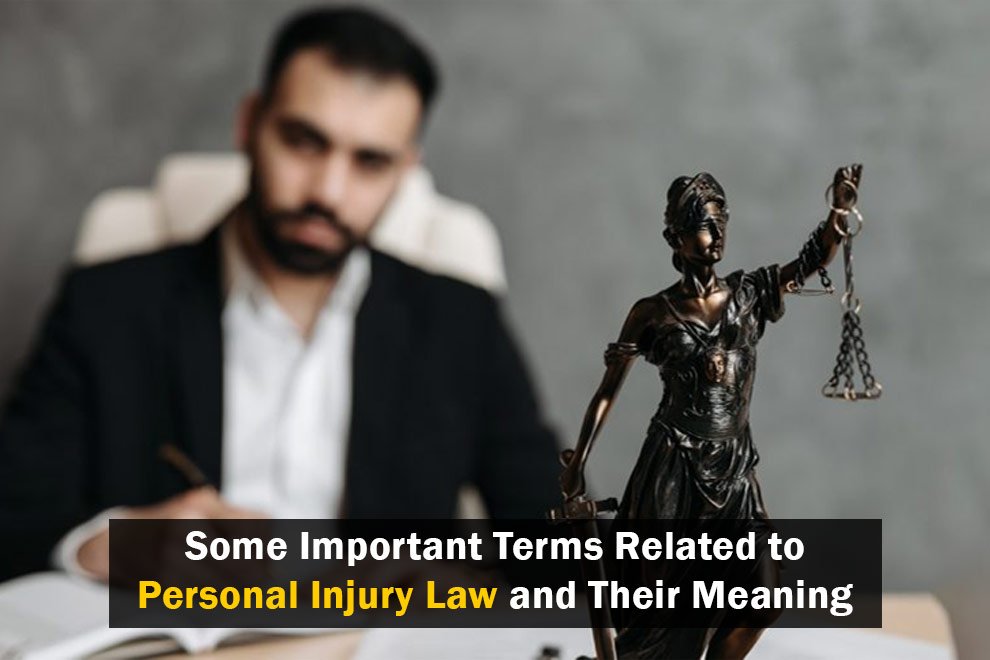When navigating the complex world of personal injury law, it’s essential to grasp some key terms that often come up in these cases. Understanding these terms can empower individuals to communicate better with legal professionals and make informed decisions about their claims.
Knowledge about personal injury law is important in a city like Milwaukee. A vibrant city in Wisconsin, Milwaukee has a population of over 590,000 people and thrives on manufacturing, healthcare, and finance.
Suppose you are seeking justice for an accident in this bustling city. In that case, Milwaukee personal injury attorneys can provide crucial guidance, ensuring you have the legal support needed to navigate your case.
In this post, we will explore important legal terms and their meanings to help you feel more confident as you move forward with your personal injury claim.
Negligence
Negligence is a fundamental concept in personal injury law. It is described as the failure of a person or entity to exercise logical care, which results in harm to another person. In personal injury cases, proving negligence is often key to securing compensation. The injured party must show that the responsible party did not take reasonable steps to prevent harm that directly caused the injury.
Liability
Liability is the legal responsibility one party has for the damages suffered by another. In personal injury law, determining liability is crucial, as it dictates who will be responsible for compensating the injured party. Liability can sometimes be shared, meaning more than one party may be held accountable.
Damages
In personal injury cases, the term “damages” is denoted as the compensation the injured party seeks. These damages can be categorized as either economic or non-economic.
Economic damages cover tangible costs, such as medical bills, lost wages, and property damage. Non-economic damages compensate for more subjective losses, including pain and suffering and emotional distress.
Statute of Limitations
Every personal injury case is bound by a statute of limitations, which sets the duration of time within which a lawsuit must be filed. If the claim is not filed within this period, the injured party forfeits the right to pursue compensation.
The statute of limitations differs based on the type of case and the state where the injury occurred.
Comparative Fault
In some cases, the injured person may share accountability for the accident. Comparative fault is the legal doctrine in which the compensation awarded is reduced according to the injured party’s degree of fault.
For example, if an individual is responsible for 20% at fault for an accident, their total compensation will be reduced by 20%.
Pre-existing Condition
This is a health issue that an individual had before the accident. In personal injury cases, the presence of a pre-existing condition can complicate the claims process. The opposing party may argue that the injuries were not solely caused by the accident, making it critical to demonstrate how the incident worsened or aggravated the pre-existing condition.
Settlement
Most personal injury cases are addressed through settlements, which are agreements between the injured party and the responsible party (or their insurance company) to compensate for damages without going to trial.
Settlements provide a quicker resolution to the case, but it’s important to ensure that the amount offered covers all current and future expenses related to the injury.
Contingency Fee
In personal injury cases, attorneys typically work on a contingency fee basis. This structure makes legal services more accessible to individuals who may not have the funds to pay upfront. The lawyer’s fee is typically a percentage of the settlement or award.
Pain and Suffering
Pain and suffering is interpreted as the physical and emotional distress a victim incurs as a result of an injury. Unlike economic damages, pain and suffering are perceptual and harder to quantify, making them a common point of contention in personal injury cases. These damages compensate for both the immediate and long-term consequences of the injury on the victim’s life.
Tort
A tort is a civil fault that brings harm or loss to another person. In personal injury law, most claims are based on tort law, which allows the injured party to seek compensation from the person responsible for their injuries.
Becoming familiar with these terms can empower you to understand the legal process better and work more effectively with your attorney.
Also Read: How to Choose the Best Lawyer in Tulsa, Oklahoma for Legal Representation










